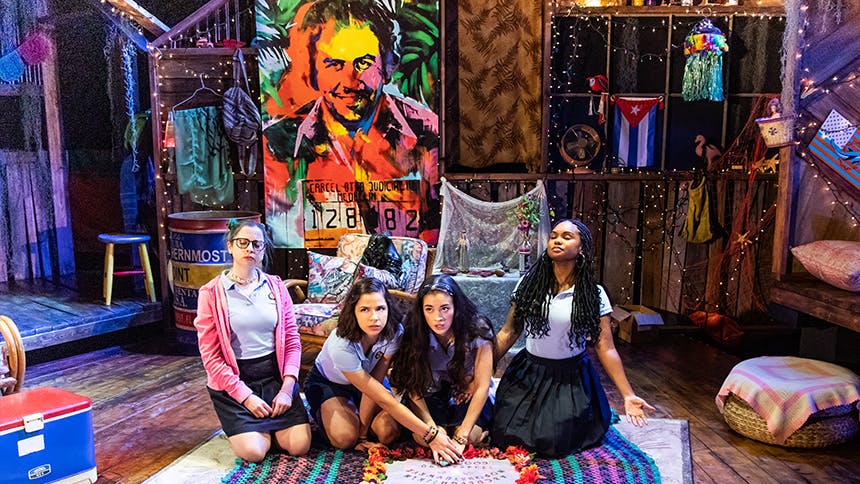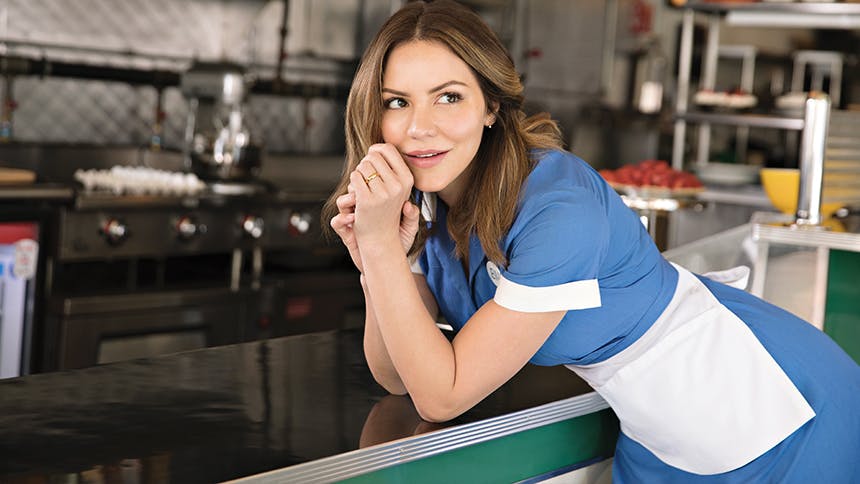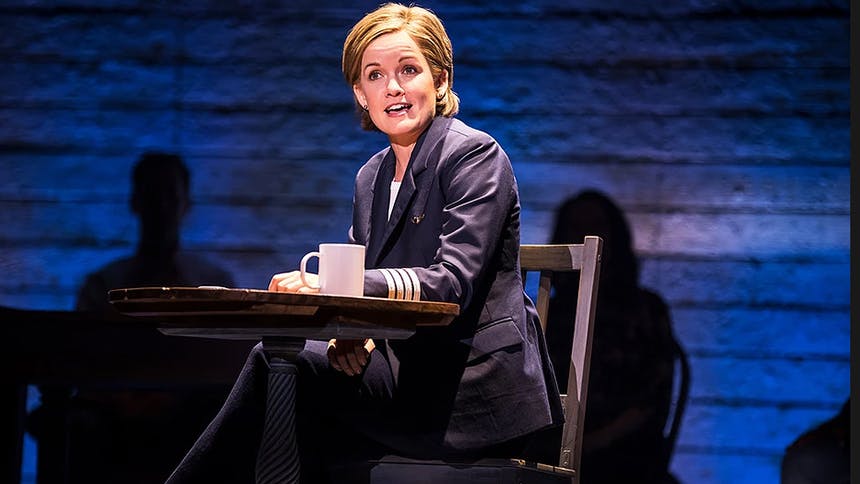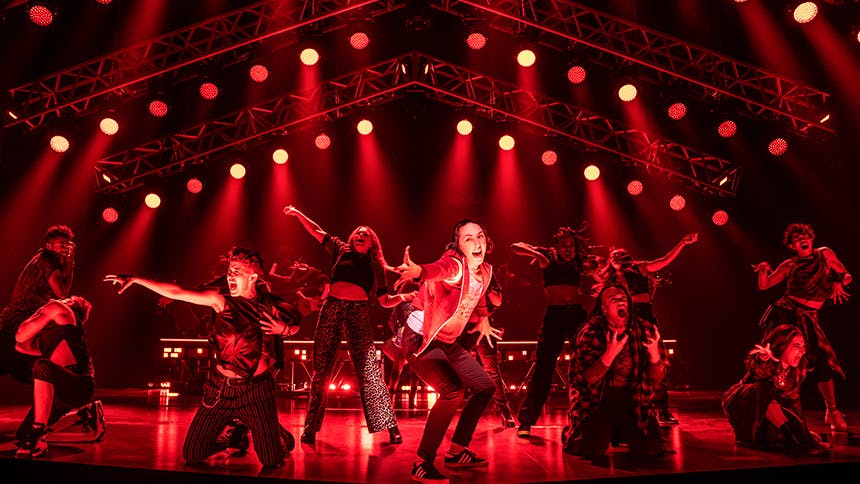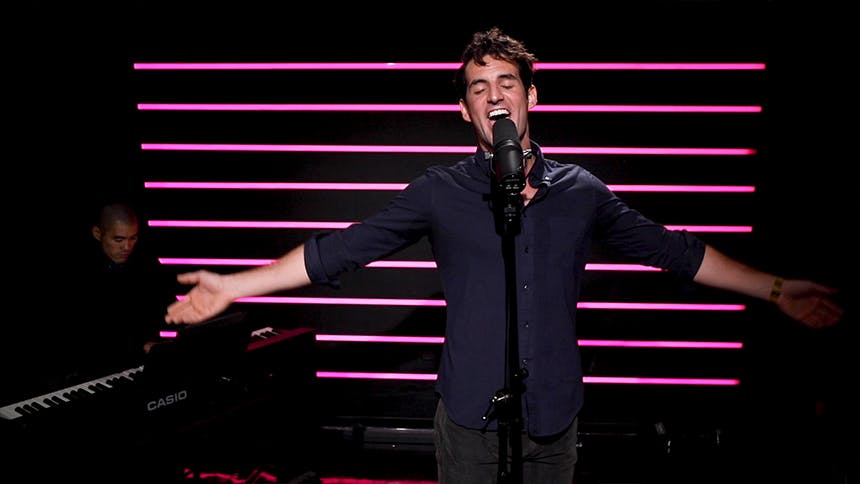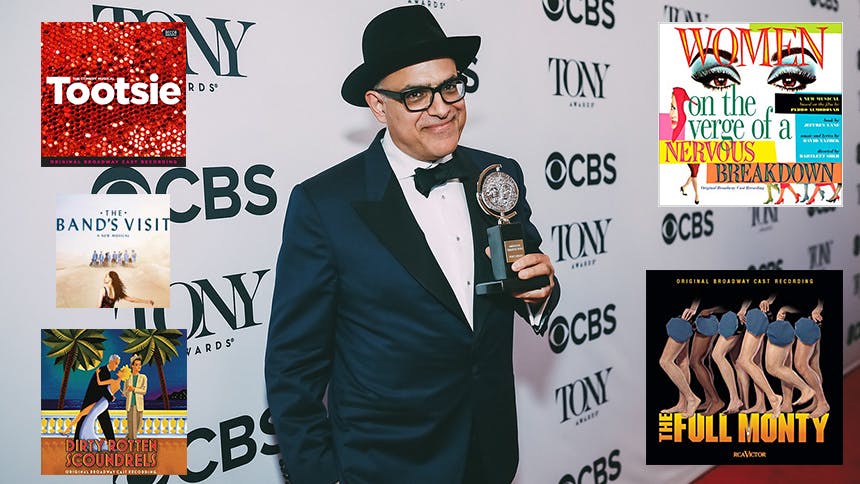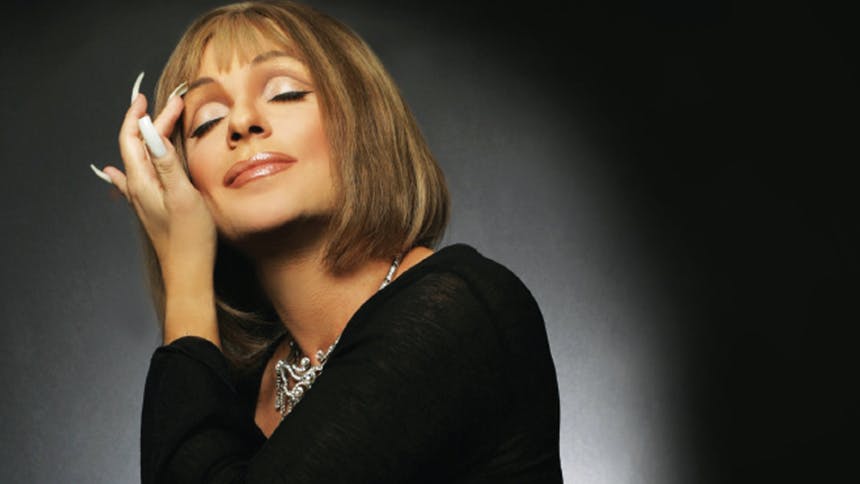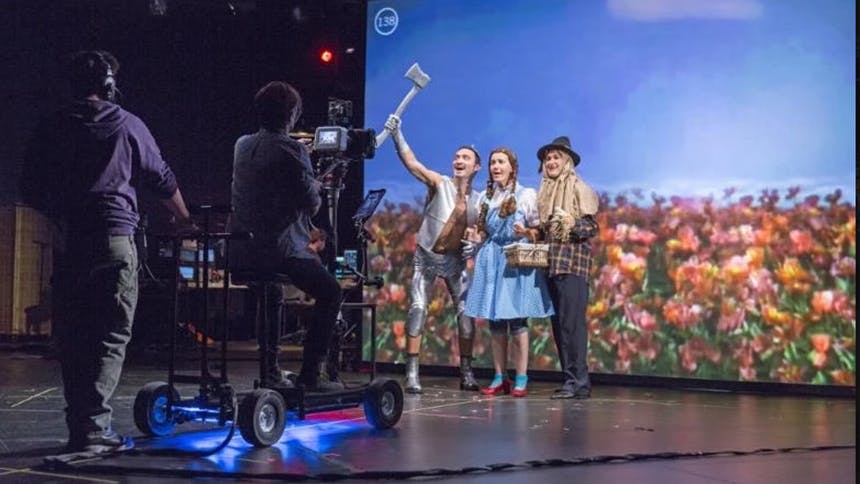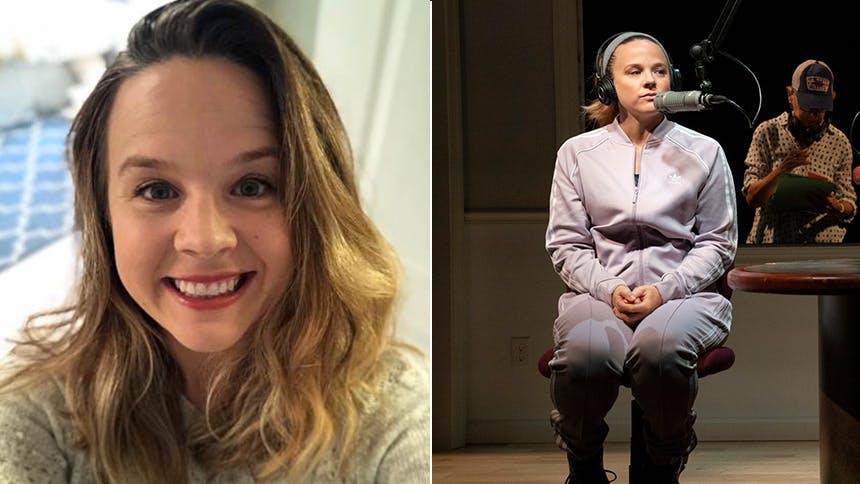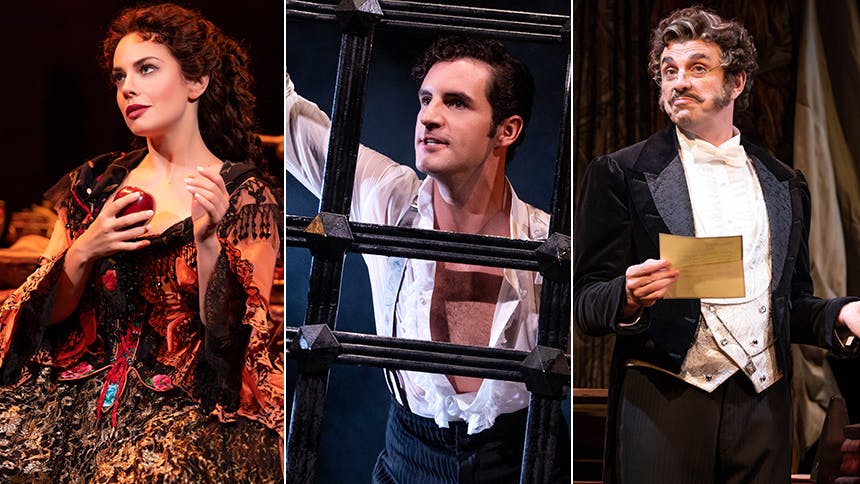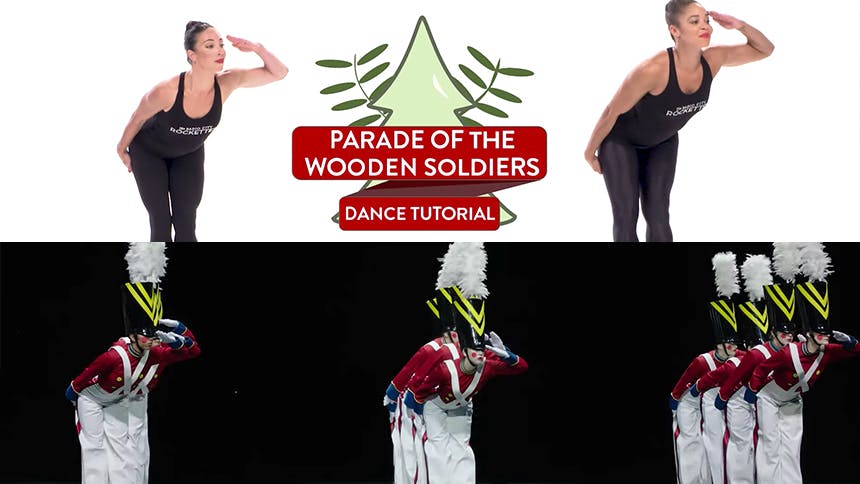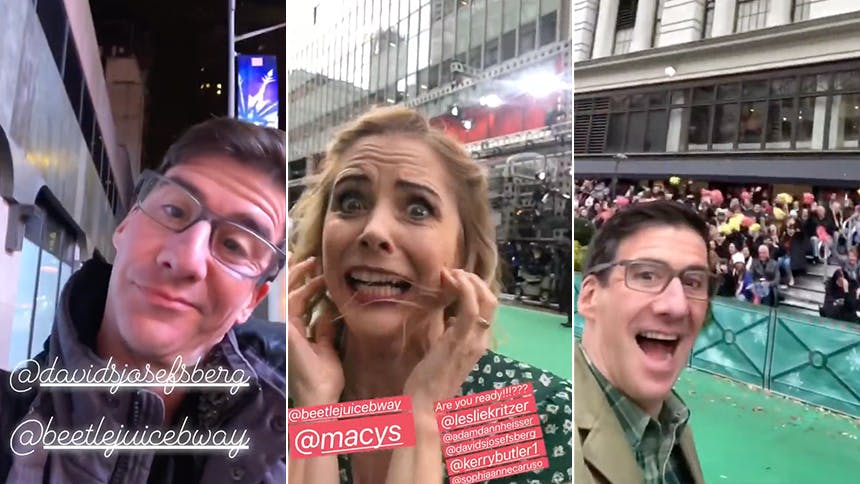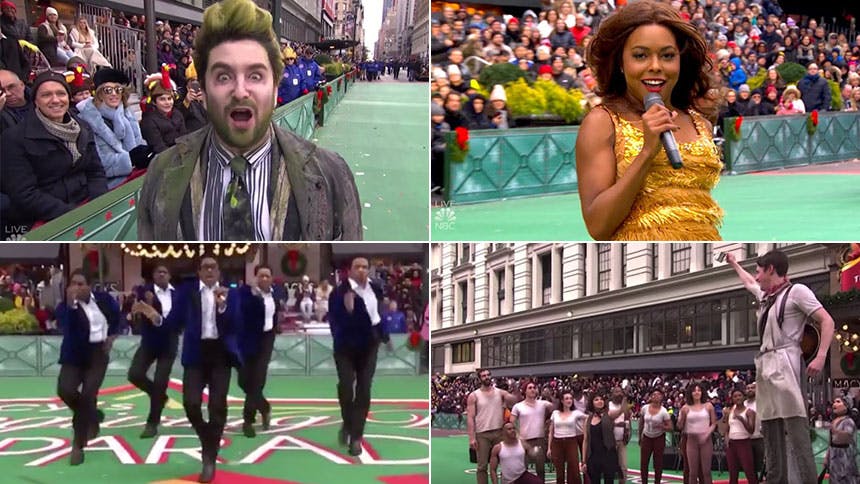You would be doing yourself a disservice this December to miss the off-Broadway run of Alexis Scheer's searing, shocking, and powerful new play, Our Dear Dear Drug Lord
. Set in Miami during the first Obama election in 2008, the play introduces audiences to the four teens that make up their high school's Dead Leaders Club. The girls—each suffering and exploring in their own way—attempt to contact Pablo Escobar, but the larger piece is about young women coming into their power. The WP Theatre and Second Stage's co-production features four absolutely incredible performances (many of which are debuts) by a quartet of actresses the theatre set should know.Scroll on as we talk with each of the stellar performers as they discuss the play's themes of women owning their power and the friendship between them, where they think their characters end up in 2019, and theatre pieces that rocked their worlds.
Carmen Berkeley
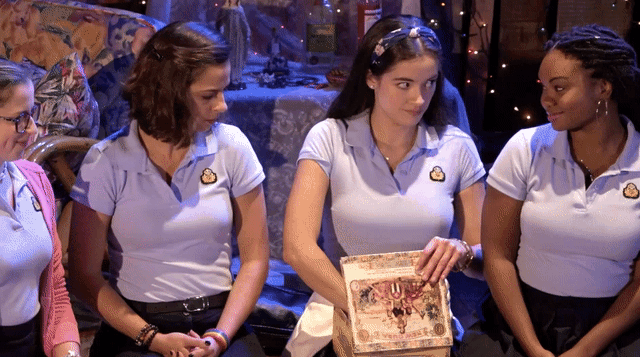
Carmen makes an explosive New York theatre debut leading the production as Pipe, a 17-year-old, Cuban-American republican wrestling with family loss and her sexuality.
1. What was your reaction the first time you read the piece? Why did you want to be part of telling this story?
I was blown away! The script was so unique and beautiful, and I really felt like I saw myself in each of the girls in different ways. Alexis' writing made me laugh out loud and remember parts of my high school self I had completely forgotten. Plus, I'm Cuban American, and it was my first time auditioning for a character who was specifically written as Cuban American. It felt too good to be true.
2. This show is a 90-minute bullet that doesn’t stop. How do you prepare pre-show for this emotional journey and what’s your go-to way to come down after a performance?
For me, preparing emotionally for the show is really just about preparing physically. I don't have too much time to drink water once the show has started, so I make sure I drink a TON of water beforehand and get to the theatre early enough to warm-up at least 20-30 minutes before fight call. Also, the four of us share a dressing room, so we're usually talking, playing music and telling stories while we get ready, and having that chance to connect as a group really energizes me!
After the show, I usually just drink even more water, listen to music on the subway and turn my brain off. If it's a two-show day, I always take a shower in between shows, sometimes sleep, and try to eat something that's good for my voice!
3. What line from the show do you find yourself thinking about most outside the theatre?
"Olivia Benson is not smiling down on you right now."
4. How does your performance change or grow as the run goes on?
The show changes and grows in little ways all the time! We're always trying to go a little deeper, whether it's finding new jokes or just clearer ways to tell the story. I would say the biggest change for me has been learning to breathe and stay loose during the most intense moments of the show. Having a lot tension in my body can really get in the way of my performance, so as I get more and more comfortable in the show I'm always working on staying open and breathing during the moments that tend to get emotional and climactic.
5. This takes place in the fall of 2008. Where do you think Pipe is now in 2019?
I think about this all the time. Her life could go in so many different directions! I think she's out to her parents and in therapy. She has a cute girlfriend who keeps her grounded, and she's working at a corporate law firm but seriously reconsidering her career choices. She's finally realizing she actually has no idea who she is, which is a good thing!
6. Tell us about a piece of theatre that rocked your world as an audience member.
A few weeks ago I saw our director Whitney White perform at Joe's Pub! It was a concert version of Othello from the perspective of Emilia and it was unbelievable, I had chills the whole time.
7. If you could contact one deceased cultural figure, who would you conjure and why?
I think ancient history is really fascinating, so I'd probably contact some ancient queen like Nefertiti or Boudica, just so I could ask them what their lives were really like. But, also, maybe Frida Kahlo.
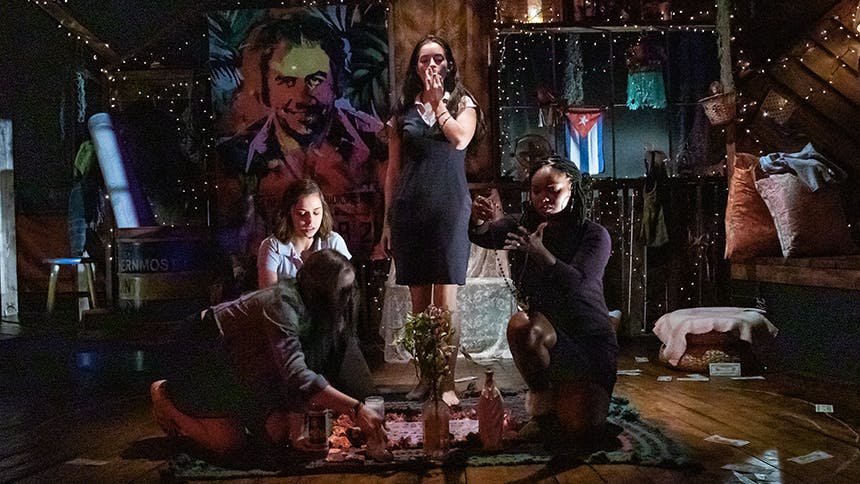
Malika Samuel
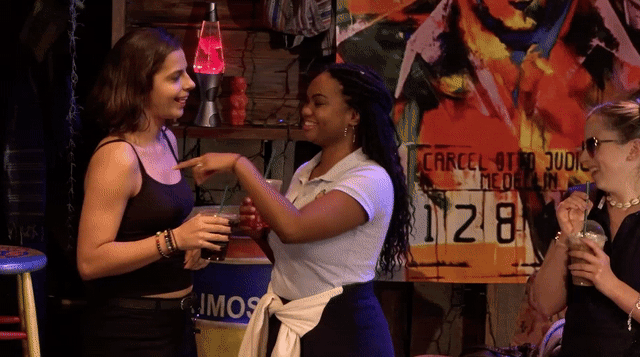
Malika previously appeared in the original Broadway company of the Tony-winning Best Play Harry Potter and the Cursed Child, and next year, she’ll be in The Music Man revival. In Our Dear Dead Drug Lord, Malika is mesmorizing as Squeeze, a smart, Obama-supporting theatre kid overcoming the loss of her father.
1. What was your reaction the first time you read the piece? Why did you want to be part of telling this story?
“Wait, what?!” was my honest reaction. I had to read the play over again! I had no idea what I had just read and that excited me. I had questions and I needed answers—which I still don’t fully have! These young women are so complex and layered and are screaming to be understood and taken seriously. I owe it to them to investigate that.
2. This show is a 90-minute bullet that doesn’t stop. How do you prepare pre-show for this emotional journey and what’s your go-to way to come down after a performance?
Music. My best shows are the ones that kick off with a dance party in the dressing room with the other girls. It really connects us and gets our energy up! For bows, M.I.A’s Paper Plane plays and I immediately drop back into my body ‘cause that beat goes hard and is hard to resist. I let it all go with a little body roll.
3. What line from the show do you find yourself thinking about most outside the theatre?
I think most about this particular exchange between Pipe and Squeeze.
Pipe: “How can a 9-year-old choreograph a dance?”
Squeeze: “No one’s told her she can’t yet.”
I believe it is an underrated line that truly encapsulates our play.
4. How does your performance change or grow as the run goes on?
My castmates and I are so finely attuned with one another. I am highly sensitive to the energy between us. I hear things differently and things hit me differently each night. It is not exactly the kind of play you can sit back in. The blessing of being extended has allowed me to really pinpoint Squeeze’s points of view and thus play with maintaining that while staying present.
5. This takes place in the fall of 2008. Where do you think Squeeze is now in 2019?
Squeeze is definitely a drama therapist right now. Throughout the play, Squeeze demonstrates tremendous emotional intelligence and there is a scene in particular that highlights Squeeze’s innate understanding of the cathartic nature of dramatic expression. I think it would be a natural path she would stumble upon after an undergrad theatre program. She would want to use her passion to help others as it has helped her.
6. Tell us about a piece of theatre that rocked your world as an audience member.
Sometimes I joke to the other members of our girl gang that I am channeling Alice Ripley in Next to Normal to get through the end of our show. Diana is such a poignant glimpse into a real complete woman—the good and the ugly, the ups and the downs. I remember being completely gutted and in awe of Alice Ripley’s technique, strength, and her ability to so generously put such pain on display. I couldn’t fathom putting myself through that on a stage each night and boom, enter Our Dear Dead Drug Lord. Thank you, Alexis Scheer.
7. If you could contact one deceased cultural figure, who would you conjure and why?
I don’t have an answer to this question. Let the spirits rest.
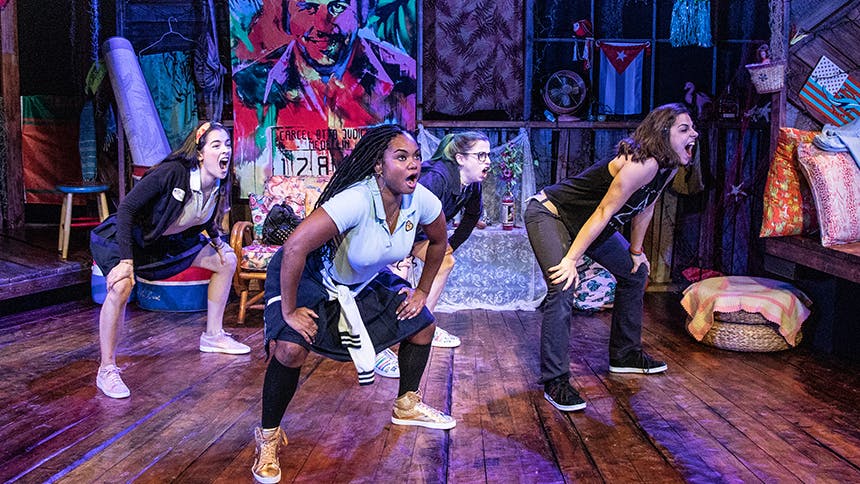
Alyssa May Gold
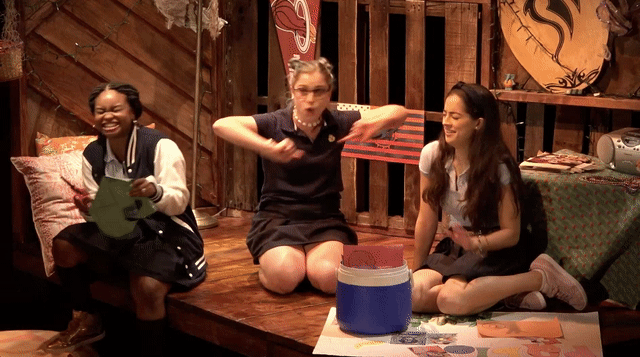
Alyssa is the founder of Pocket Universe theatre company and starred in their productions of Juliet + Romeo and Julius Caesar
. She appeared on Broadway in the revival of Arcadia and played young Teensy in the star-studded Divine Secrets of the Ya-Ya Sisterhood film. Here she gives a jaw-dropping performance as Zoom, the group’s youngest member and side-kick whose journey is best left vague.1. What was your reaction the first time you read the piece? Why did you want to be part of telling this story?
I was completely out of breath by the end of the play, as well as overwhelmed with respect for Alexis Scheer. There was only one place her story could go next and rather than shy away from it or tie it up with a nice, polite bow, she burned the place down.
That’s the kind of theatre I’m drawn to—epic and cathartic, especially when it explores the complexity and power of teenage girls. I was excited that these girls were as obsessed with politics, history, and the fall musical as they were with their crushes.
2. This show is a 90-minute bullet that doesn’t stop. How do you prepare pre-show for this emotional journey and what’s your go-to way to come down after a performance?
Pre-show, when the girl gang is in the dressing room, we all have a good sense of when we collectively need to be quiet and focus, and when we need to cry about our days or sing show tunes and laugh ourselves silly.
Emotionally, I find the end of the show so satisfying that it usually leaves my body by the time we bow. Winding down takes longer though, so sometimes I’ll walk part of the way home listening to Maggie Rogers and Taylor Swift (yes I do think Zoom has worn out her Fearless CD).
3. What line from the show do you find yourself thinking about most outside the theatre?
“Y usted, mi hija, esta muy cerca al despertar.” It translates to “And you, my child, are so close to waking up.” Many coming of age stories about girls center on their first experiences of love or sex. This play is about a group of girls searching for power. If they woke up and realized the power they have, they wouldn’t wind up doing what they do. I feel myself waking up to my own power more and more each time we do the show, and I hope that’s how the young women who see it feel, too.
4. How does your performance change or grow as the run goes on?
It’s like learning how to drive. At first, you’re focusing on the gas and the breaks, checking the mirrors and looking forward, etc. But by the time you’ve driven the same road 85 times (which including previews, we have!) you know where you’re going and have a route you like to take, you’re aware of all of the other cars and now you can also notice the flowers on the side of the road and listen to your favorite song—it becomes a richer experience.
5. This takes place in the fall of 2008. Where do you think Zoom is now in 2019?
Zoom is 100% an up and coming defense attorney (I mean did you hear her conspiracy theory about Pablo?) probably very far away from Miami and the Dead Leaders Club. She definitely had to go through a lot of therapy but I always feel at the end of the show that something is awakened in her and I like to believe that she uses her inner power to help all the Zooms of the world trust theirs. And she definitely still draws on her sneakers.
6. Tell us about a piece of theatre that rocked your world as an audience member.
Emilia by Morgan Lloyd Malcom at the Globe in London—a loud, clever, poetic, primal scream of a new play. I was incredibly moved and inspired to see a play about a woman lost to history performed by an all-female cast at the Globe, a theater built in a time when women weren’t even allowed onstage.
7. If you could contact one deceased cultural figure, who would you conjure and why?
Emily Roebling has been my hero since I first read about her when I was seven. Her father-in-law designed the Brooklyn Bridge but died before construction began, and then her husband, who was building it, got decompression sickness. Emily oversaw the completion of construction and got the job done. Whenever I walk over the bridge, my favorite NY activity, I am so proud to be walking on the literal path she paved.
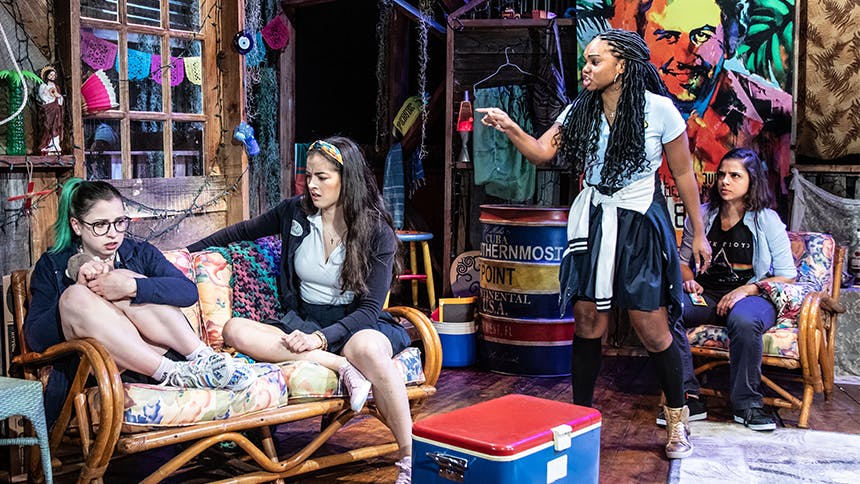
Rebecca Jimenez
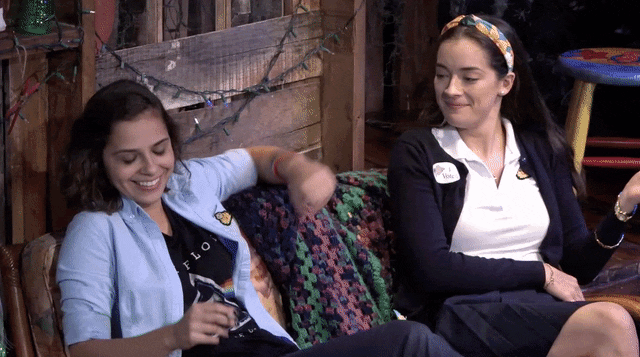
Rebecca makes a sensational off-Broadway debut as the dynamic and confident Kit, an out teen with a mysterious past and the newest member of the club.
1. What was your reaction the first time you read the piece? Why did you want to be part of telling this story?
I thought, "This is exactly the type of theatre I want to be a part of." I love work that is about women exploring and finding their power. It also allows them to access this magical and animalistic side of themselves, which are two things I value in art. It's what I want art to make people explore. And because it takes place in Miami, I love doing anything that celebrates where I come from. It was so relatable.
2. This show is a 90-minute bullet that doesn’t stop. How do you prepare pre-show for this emotional journey and what’s your go-to way to come down after a performance?
I need to make sure I warm-up deeply. I need to be physically relaxed and energized. Sometimes I'll dance to get my imagination and creative juices flowing—that always wakes up something in me. Post-show, it’s gotten easier to come down and leave the story on the stage the longer we do the show. It definitely pumps a lot of adrenaline. I usually shake off the show when lights go down before bows. When I get home, I'll take some time and breathe out the show.
3. What line from the show do you find yourself thinking about most outside the theatre?
"Have things and not be had"—we have the power and if we have the desire, then anything we want can happen!
4. How does your performance change or grow as the run goes on?
It gets deeper and more human. And you don't realize the discoveries or the changes that happen until you get off stage, and that’s so exhilarating and exciting to have found new things and see them in a different way. Repetition is powerful, it always reveals.
5. This takes place in the fall of 2008. Where do you think Kit is now in 2019?
I think in 2019, she's working to become a therapist. I think she's gotten more in touch with that empathetic part of herself and wants to help others who are in pain. She's been able to work through lot of her trauma through therapy. And because it changed her life, she wants to help others.
6. Tell us about a piece of theatre that rocked your world as an audience member.
Pina Bausch’s Rite of Spring and Cafe Mueller at BAM... Changed my life.
7. If you could contact one deceased cultural figure, who would you conjure and why?
Mahatma Ghandi, I would want to hear and see him speak live. He was so powerful and wise.
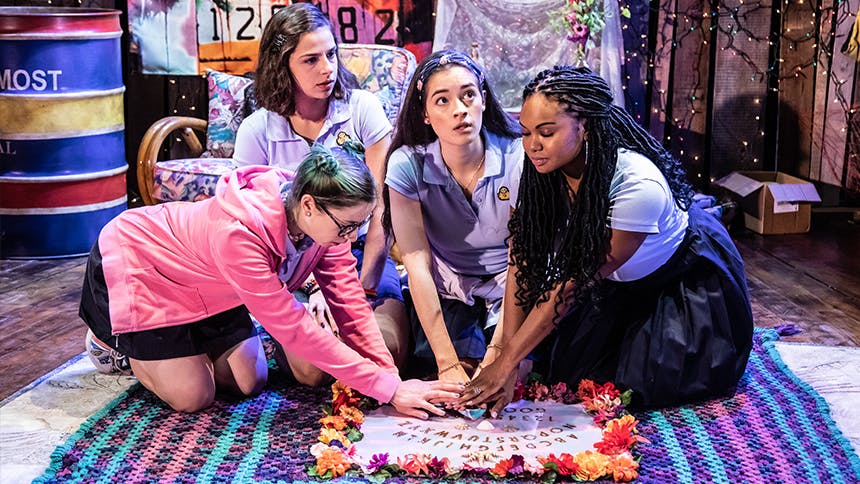
Hurry to off-Broadway's WP Theatre before January 5 to see these four incredible actresses in Our Dear Dead Drug Lord.
